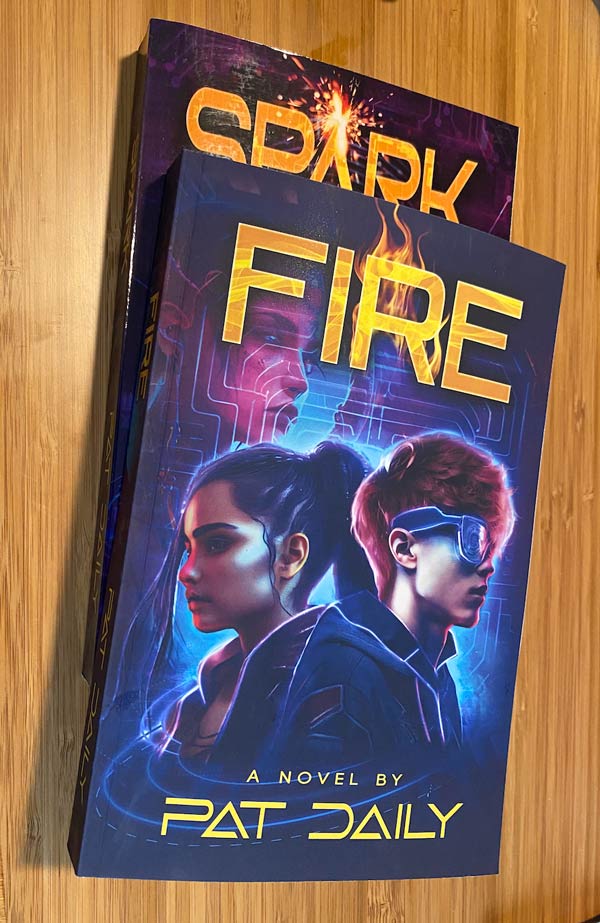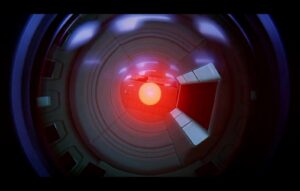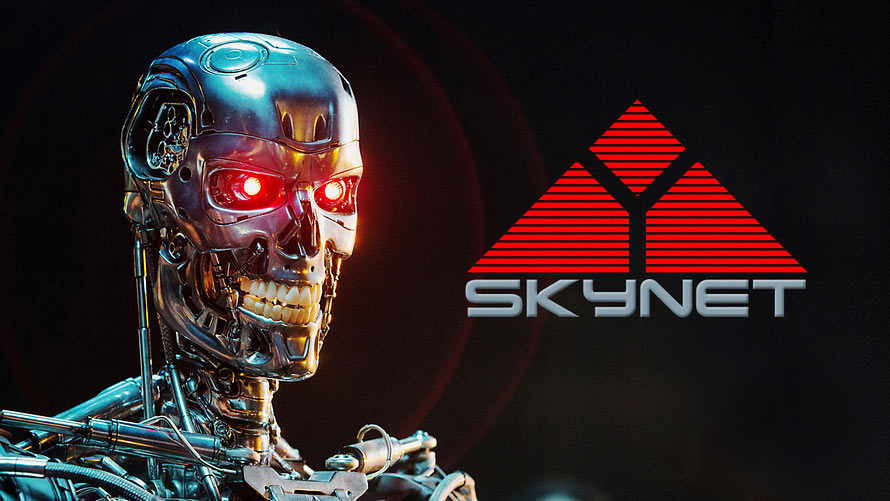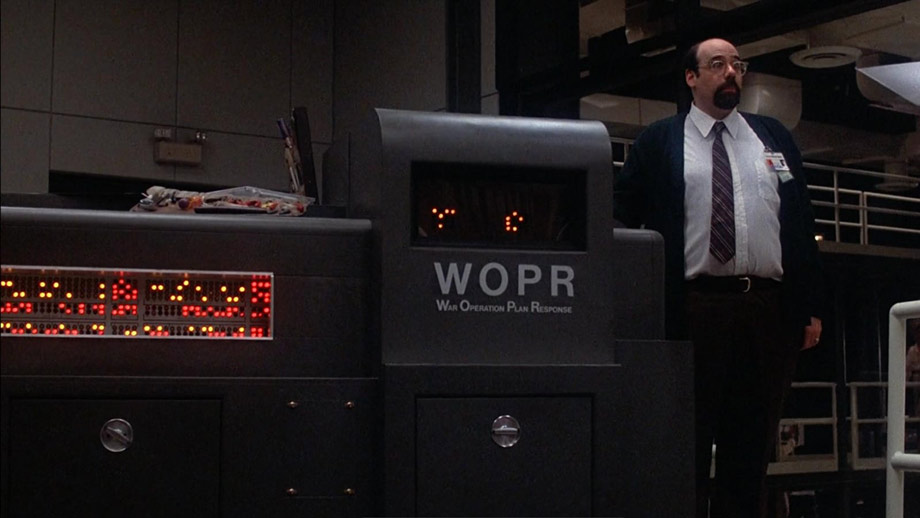In the iconic movie, 2001: A Space Odyssey, an Artificial Intelligence, the HAL 9000, went nuts and killed all but one of his human crew.
Since then, BSC (Bat Sh*t Crazy) AIs have been de rigeur in SciFi. Colossus – Colossus: The Forbin Project – followed shortly thereafter. More recently, it’s been all about SkyNet and Terminators and The Matrix.
I wanted Janne to be different – intelligent, self-aware, emotionally adaptive, and kind.
The standard trope is that, once an AI becomes aware, it realizes that the greatest threat to its survival is people. Killing all the humans solves that problem but does little to keep the AI engaged and entertained until the power runs out.
Artificial Intelligence as a science has moved faster than most people (other than Arthur C. Clarke) expected. It’s difficult now to know whether you’re dealing with an AI or human online.
OpenAI is a company whose stated mission is “to ensure that artificial general intelligence benefits all of humanity.”
Let’s hope so.
OpenAI recently released ChatGPT 3.5 for general population mucking about. It can compose poetry, write code, debug code, write a procedure for removing a peanut butter sandwich from a VCR (seriously, only Google, machines, and old people remember VCRs) in the style of the King James Bible.
It can write papers for you. For school.
Yikes.
The generally accepted AI categorization scale looks like this one adapted from a Forbes article:
- Reactive Machines – IBM’s Deep Blue, the machine that beat Garry Kasparov in chess in 1997.
- Limited Memory – facial recognition software, early chatbots
- Theory of Mind – I think ChatGPT3.5 sits here. I don’t think the 3.5 is coincidence.
- Self-aware – WOPR, the computer from the movie WarGames. Tic tac toe, anyone?
- Artificial Narrow Intelligence – in SPARK, this would be Prime – she’s focused on the Black Grass and power generation and cares little for other things.
- Artificial General Intelligence – Janne, Teacher Janne – they self-code, interact well with guests, teach human children, and fight terrorists.
- Artificial Superintelligence – SkyNet and The Matrix.
In Diminishing Return, Joseph D. Newcomer, (reviewed here) posits a future where all entertainment is derived from previous media. That’s already true to a certain extent. Musicians sample previous work to include in their own. CSI changes towns and cast and tells the same stories over and over. My own work owes a nod or two to Larry Niven and Ernest Cline.
That’s exactly how an AI would write a book or screenplay: look for themes and stories that worked before, tweak them a bit, change names and technology, and voila, Spiderman XLVI: A Long Way From Charlotte’s Web. I’ve seen some of the poems and papers. Sadly for us carbon-chain beings, they’re good.
Good has always been the enemy of great. Most TV is mediocre – placeholders for the next great series – and with expanding channels, that’s going to continue. If AI can produce tepid screenplays at lower cost, Hollywood writers are in trouble.
ChatGPT is also fast. Seconds to create a paper or poem. Writing, as a profession for meat-based life, may be nearing its end. Add fast CGI, and even Chris Hemsworth won’t need to take time off to be with his family.
Games like Mass Effect create “shackled” AIs to give us level 6-7 capability while allowing us the illusion of control.
Be nice to them. Bow to our overlords.

Buy my new book here.
Or go read my books. I have a rosier vision of AI that aligns with what OpenAI is trying to do. Sure, Morrigan (Fire reference) might have some anger issues, but mostly my AIs want to help. I think real AIs are already helping, but here’s a short list of my immediate desires:
- Phonebots that actually, and completely, understand what I’m saying and solve my problems with Xfinity without human intervention or extended hold times.
- Trafficbots that control traffic based on something like, I don’t know, actual traffic for starters, not time. I still want them to stop traffic to allow Mother Duck and her ducklings to cross the street.
- Anti-spambots. Dang it, if the phone company knows enough about the caller to put “Spam Likely” on my screen, it knows enough to stop the call.
There are plenty of opportunities for beneficial AI.
What would you like to see?




